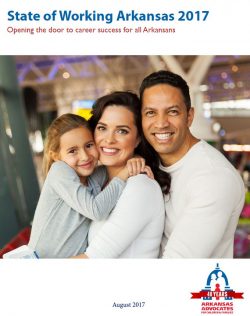
Arkansas is a hardworking state. In fact, we have over a million employees who work here. That number has been growing recently, as our unemployment figures hit record lows. That is a positive and welcome change for working families in our state because it means jobs are easier to come by and wages are going up. Economically, things are changing for the better. However, some things are not changing very much at all.
Unfortunately, even if you try your best, growing up in Arkansas means that you might still have a harder time finding work, or be paid less, because of your gender or race. Black and Hispanic workers in Arkansas still work for lower wages and have a harder time finding employment than other groups. These gaps are stubborn stains on the good news of our economic recovery. These stains can either be ground in or lifted out depending on the policy choices of lawmakers at the State Capitol. Arkansas lawmakers have an opportunity to make sure that everyone in our state has access to our dynamic and diverse job market, and that everyone has an opportunity to succeed in a rewarding career.
Raising the minimum wage, which voters overwhelmingly approved by ballot initiative in 2014, was a great first step toward improving wages for many workers who are often left behind. However, this progress is somewhat undermined by the continual chipping away at Arkansas’s unemployment insurance program, which protects workers and our economy as a whole. Reversing cuts to this important program and investing in quality education are just two of the ways that would help us work together toward a brighter future for Arkansas.
Read more about the economic landscape in Arkansas – including how it differs across age, race, education level, and gender – in our newest policy brief, State of Working Arkansas 2017.
